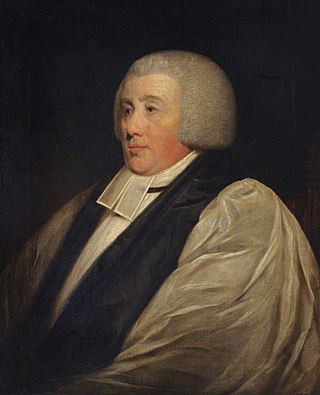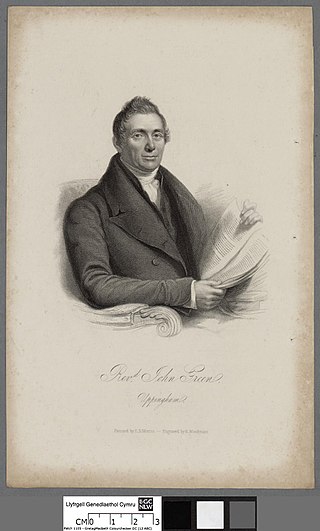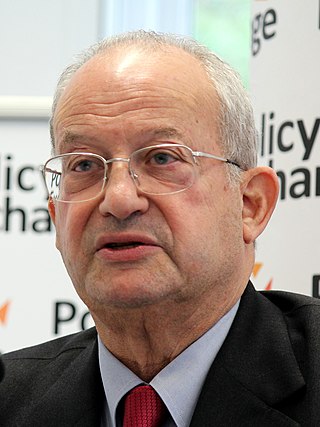Related Research Articles

Thomas Bourchier was a medieval English cardinal, Archbishop of Canterbury, and Lord Chancellor of England.

Spencer Compton Cavendish, 8th Duke of Devonshire,, styled Lord Cavendish of Keighley between 1834 and 1858 and Marquess of Hartington between 1858 and 1891, was a British statesman. He has the distinction of having held leading positions in three political parties: leading the Liberal Party, the Liberal Unionist Party and the Conservative Party in either the House of Commons or the House of Lords. After 1886 he increasingly voted with the Conservatives. He declined to become prime minister on three occasions, because the circumstances were never right. Historian and politician Roy Jenkins said he was "too easy-going and too little of a party man." He held some passions, but he rarely displayed them regarding the most controversial issues of the day.

George Joachim Goschen, 1st Viscount Goschen was a British statesman and businessman best remembered for being "forgotten" by Lord Randolph Churchill. He was initially a Liberal, then a Liberal Unionist before joining the Conservative Party in 1893.

Hugh Percy, 3rd Duke of Northumberland, styled Earl Percy until 1817, was a British aristocrat and Tory politician who served as Lord Lieutenant of Ireland under the Duke of Wellington from 1829 to 1830.

George Ponsonby, was a British lawyer and Whig politician. He was Lord Chancellor of Ireland from 1806 to 1807 in the Ministry of All the Talents.
Cambridge University was a university constituency electing two members to the British House of Commons, from 1603 to 1950.

William Lort Mansel was an English churchman and Cambridge fellow. He was Master of Trinity College, Cambridge from 1798 to his death in 1820, and also Bishop of Bristol from 1808 to 1820.

The Oxford and Cambridge Club is a traditional London club. Membership is largely restricted to those who are members of the universities of Oxford and Cambridge, including men and women who have a degree from or who are current students of either university.

William Dudley was Dean of Windsor and then Bishop of Durham.
Thomas Cobham was an English churchman, who was Archbishop-elect of Canterbury in 1313 and later Bishop of Worcester from 1317 to 1327.
Louis of Luxembourg;. Bishop of Therouanne 1415–1436, Archbishop of Rouen, 1436, Bishop of Ely 1437, Cardinal.

John Green was an English clergyman and academic. He became the chaplain of Charles Seymour, 6th Duke of Somerset, and Vice-Chancellor of the University of Cambridge.

The University of Cambridge Chancellor election, 2011 refers to a rare instance of a contested election for this position of Chancellor that occurred in October 2011, resulting in the choice of Lord Sainsbury of Turville to succeed the retiring incumbent Prince Philip, Duke of Edinburgh. The Duke had retired on 30 June 2011, shortly after his 90th birthday, having been Chancellor since December 1976. Three other candidates were nominated to oppose the candidate proposed by the university's Nomination Board; the post was won by Lord Sainsbury with 52% of the vote, with a simple majority required to avoid a runoff. Contesting the post were actor Brian Blessed, who finished second with 25% of the votes cast, barrister Michael Mansfield, QC with 17%, and local grocery-owner Abdul Arain with 6%. The election was the first time the Chancellorship had been contested since 1950, and the first actively fought contest since 1847. Although the election was conducted by the single transferable vote system, no transfers of votes were needed as Sainsbury secured a majority of first preference votes.
An election for the Chancellorship of the University of Cambridge was held in November 1950 after the death of the incumbent Chancellor, Jan Smuts. There was a contested election as the University of Cambridge's establishment's candidate, Lord Tedder, was opposed by a group of Dons who favoured Jawaharlal Nehru. Nehru was nominated without giving him an opportunity to withdraw, and although honoured by the nomination, felt he could be of no service to the University. Although Nehru eventually persuaded his supporters to withdraw his name, a nominal election was required and took place on Friday 10 November, Tedder being declared the winner but without disclosing the number of votes cast.
The election for the Chancellorship of the University of Cambridge, 1748 chose a new Chancellor of the University. The election was triggered by the retirement of the previous incumbent, Charles Seymour, 6th Duke of Somerset, in February 1748.

The election for the Chancellorship of the University of Cambridge, 1626, chose a new Chancellor of the university. There were two candidates for the post, George Villiers, 1st Duke of Buckingham, supported by the king, and Thomas Howard, 1st Earl of Berkshire, a son of the Chancellor who had just died.

Francis Barnes was an English philosopher and a Knightbridge Professor of Philosophy.

John Balderston was an academic at the University of Cambridge, master of Emmanuel College and twice vice-chancellor of the university.
Sir Thomas Page was an English academic.
Lowther Yates, D.D. was a priest and academic in the second half of the 18th-century.
References
- Elisabeth Leedham-Green, A Concise History of the University of Cambridge (Cambridge University Press, Cambridge, 1996) pp. 146–8